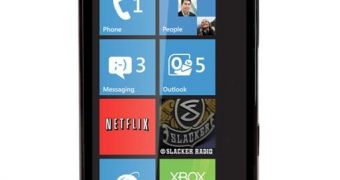During the first day of availability for the new Windows Phone 7 devices in the United States market, a number of 40,000 units were sold, some of the latest reports around the Internet suggest.
The figure might not seem impressive at all, especially when compared to what other mobile OSes out there enjoy at the moment, but they are pretty good for a new mobile OS that launched on a Monday, usually a slow selling day.
According to a recent article on The Street, a market research source came up with the said sales figure, but Microsoft did not comment on the matter.
Michael Cote, an industry strategist with the Cote Collaborative, commented: “Mondays aren't great launch days. They poured all that cash into it but they lost track of the fact that Fridays or Saturdays are the best launch days.”
At the same time, he says that Microsoft might have confused users with a large number of handsets being pushed to the market at once.
However, we should take into consideration a series of other factors here too, including the availability of only a small number of Windows Phone 7 devices at some stores during launch day.
Not to mention that these are only the numbers for the US market, where three phones went on sale on Monday, via two wireless carriers.
The Windows Phone 7 platform was pushed to other markets around the world too, including Asia-Pacific, Europe, or Canada, but no specific info on sales figures in these countries emerged.
Not too long ago, Windows Phone 7 handsets were reportedly selling like hot cakes in Europe, with many wireless carriers there reporting demand beyond expectations.
For comparison, Google claims that over 200k Android devices are currently being moved each day, while Apple reports over 270,000 units sold daily.
However, when compared to the sales of KIN, Windows Phone 7's performance during that first day of availability in the US seems pretty encouraging.
Windows Phone 7 is just starting to make it to users hands, and chances are that the OS, as well as the handsets it powers, would manage to impress end users just as Microsoft expects them to.

 14 DAY TRIAL //
14 DAY TRIAL //